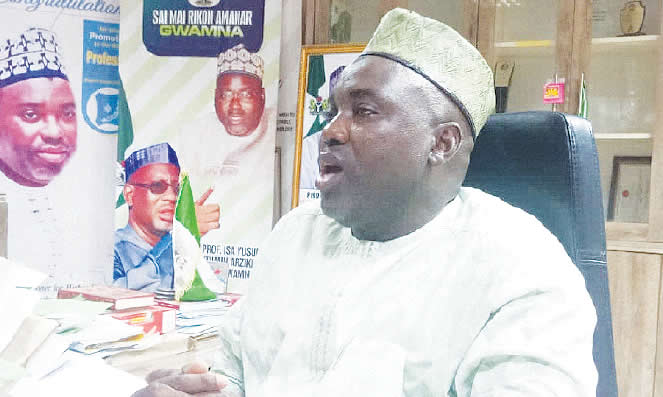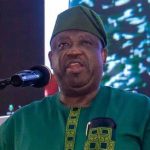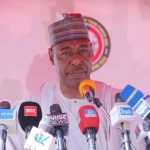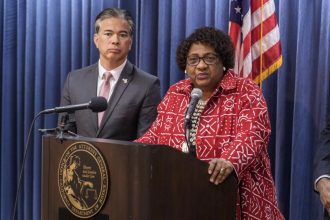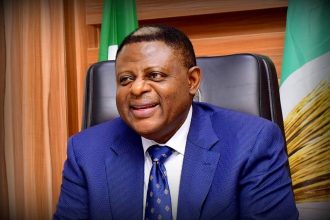The Jigawa State Commissioner for Higher Education, Prof Isa Yusuf, in this interview with JUWE OLUWAFEMI, SALMAN ANIMASHAUN and SALISU KABUGA in Dutse, opens up on steps taken by the Jigawa government to expand access to higher education. Excerpts:
Since the inception of this administration, what steps have been taken to expand access to higher education in Jigawa State?
Upon assumption of office, we first carried out the NEEDS Assessment to identify gaps in access to higher education for indigenes. The analysis revealed areas of deficiency, which allowed us to plan targeted interventions.
One of our first actions was to increase students’ bursaries by 200 per cent to ease the financial burden on families, given the current economic realities. This ensures that students can pay tuition and still have funds for upkeep.
We also restructured all seven tertiary institutions in the state, empowered their management teams, assessed needs, and recruited additional lecturers to improve teacher-student ratios. These steps boosted our admission quotas and overall enrollment.
What has been done in the area of scholarships, both locally and internationally?
We improved both local and foreign scholarship schemes. For example, we had 184 students studying MBBS and other courses in Sudan who were affected by the crisis there. We relocated them to universities in Cyprus, covering their transportation, living expenses, health insurance, and other logistics.
Annually, foreign scholarships cost us about N5 billion, while local scholarships cost over N7 billion due to the bursary review. In total, we invest over N12 billion annually to support our students.
What’s the Damodi Student Care initiative about?
This programme targets educationally disadvantaged local governments. Under it, we identify young people who have dropped out or never enrolled, we secure admissions for them, and sponsor their studies. For those in rural areas, we provide uniforms and transportation, such as tricycles, to commute them to school daily. This has reduced dropout rates at the basic level and increased higher education enrollment. Female education, from primary to university, is free in Jigawa State.
What specific infrastructural developments have been carried out in tertiary institutions?
Each institution has benefited based on its needs:
For instance, at the Kafin Hausa State University, we worked on the principal officers’ quarters at N3bn, provided 480-bed female hostels. These are aside the massive works ongoing at the Faculty of Medicine at N6bn and a sabbatical lodge. So, over N10bn has been spent here alone.
On the Polytechnic, in Dutse, we renovated three schools, constructed a female hostel, and budgeted for a multipurpose workshop to support technical and vocational education.
Then, at the Jigawa State Institute of Information Technology, Kazaure, the government built a new gate, students’ hostels, and workshops. Then, we sustained our renovation works and fully equipped the printing technology lab equipment and accounting software.
At the Ringim Polytechnic, the central admin block, lecture theatres were upgraded, just as the library and furniture were given thorough face lift.
A visit to the College of Education, Gumel, will show you the perimeter fencing, renovations of staff quarters, and other works that we either built from scratch or renovated.
This government went a step further by purchasing the Khadija University, a private university for N11bn, with N8bn earmarked for total renovation to convert it into a Medical and Allied Health Sciences University.
This will reduce the need to send students abroad for such programs.
What is the accreditation status of courses in Jigawa’s tertiary institutions?
All our courses are accredited by relevant bodies like NUC, NBTE, and NCC. However, we rationalised certain courses, moving students to institutions better suited to offer them and ensuring they graduate with valid and recognised certificates.
How is the state addressing the vocational and academic dichotomy that keeps being a source of heated debates?
For us, we prioritised vocational and technical education. This year’s budget alone allocates 15bn for workshops and machines in secondary schools.
We have established four centres of excellence for technical and vocational studies with a flagship in Dutse, featuring an eight-trade multipurpose workshop costing N5bn. Courses include: welding, fabrication, carpentry, automobile mechanics, refrigeration, catering, and crafts. Our graduates, therefore, leave with employable skills regardless of whether they proceed to tertiary education.
What about the contending problem of harmonising HND and varsity degree recognition in the civil service?
We are aligning with federal directives to equate HND with degrees. While the implementation nationwide is ongoing, in Jigawa, the disparity is minimal, and we are working to eliminate it completely.
How is the government ensuring the security of students and the academic staff?
Jigawa is among Nigeria’s safest states, but we take precautions. We’ve established a Security Response Centre at the Civil Defence Headquarters in Dutse, costing over N350 million. It includes software, gadgets, motorcycles, and other equipment. The system tracks all schools, and personnel have been trained for emergencies. We also run regular joint security patrols involving the police, army, civil defence, vigilantes, and neighbouring communities.
How were you able to address the nagging staff welfare and their recruitment process?
We are among the first states to implement the new salary scale for tertiary institutions. We recruited 147 first-class graduates into tertiary teaching and transferred over 400 qualified staff from secondary schools to universities. We also sponsor staff for higher degrees locally and abroad, covering both academic and non-academic employees. Our relationship with unions is stable due to proactive engagement.
What progress has been made in research and academic excellence?
We now sponsor research with a direct impact on Jigawa communities. For instance, Kafin Hausa University is establishing a Wetland Centre to study drought and flooding, while Gumel College of Education is creating a Staff Training and Development Centre. Institutions can now access state research grants and soon an additional fund to support nationally relevant research.
Are there challenges in encouraging female participation in higher education?
Not significantly. Female education is still free at all levels in Jigawa, and we have built specific hostel facilities to encourage and accommodate them. Our policies have greatly boosted female enrollment.
Let’s begin with female participation in higher education. What steps have your ministry taken to promote it, particularly for women with disabilities?
We take female education very seriously, which is why we introduced several programs. For people with disabilities – both male and female – we have removed tuition and registration fees across all our institutions. In terms of employment, they are given direct access without going through the same recruitment processes as others.
We also identified certain courses where female participation is low – such as food and nutrition. We are working to increase their involvement. For example, at the Government Technical College in Bichi, we sponsor over 100 female students every year. In the last two years alone, more than 300 students have been trained under this initiative.
Additionally, we run the Girls for Health (G4H) program. We identify brilliant female students at the secondary school level, and even during holidays. we keep them in school —after getting their parental consents —for coaching and retraining to help them excel in their WAEC and NECO exams.
What kind of resistance do you face from parents, particularly regarding early child marriage?
Initially, there was some resistance from parents, but things have changed. The G4H program helps keep girls in school even during holidays by providing them with school bags, teaching materials, and continuous training. After they complete their final exams, we select the best and sponsor them to study medicine abroad. Through this, we now have students in India, Cyprus, and China. Out of the 184 current beneficiaries, about 120 are female.
In your assessment, where does Governor Umar Namadi’s priority lie in terms of higher education?
Education is one of his key priorities. In his first year in office, education received 32 per cent of the state’s total budget, which rose to 36 per cent, when you include contingency funds. This year again, education received the highest budgetary allocation. This clearly shows the governor’s commitment to the sector.
Do you believe these achievements will translate into political support for Gov Namadi in the next election?
We hope so, judging by the positive feedback we’ve received from the public. However, politics in Nigeria is different from that in developed countries, where performance alone determines election outcomes. Here, factors like economic realities and campaign financing also play a big role.
Looking at infrastructure, what is your ministry doing to strengthen higher education facilities in Jigawa State?
We are engaging more lecturers, providing more research grants, and working to improve institutional infrastructure. For instance, many of our institutions lack proper road networks, so funds for that have been included in this year’s budget.
We are also addressing electricity challenges – laboratories and teaching facilities can not function effectively without power. Plans are underway to provide solar power tailored to the needs of specific institutions. In Kafin Hausa, for example, a 2–3 megawatt independent power plant is already in progress to serve the teaching hospital, university, and other facilities.
The health sector is experiencing brain drain nationwide. How are you encouraging more students to pursue health-related courses?
Through community engagement and awareness campaigns. We use radio programs, interviews, and outreach by directors and stakeholders to sensitise communities about the importance of careers in health. Only when people understand the value of these courses can we successfully increase enrollment.
The state recently purchased a university. What was the motivation behind that decision?
Our NEEDS assessment showed that student numbers, especially female students, are rising rapidly, but available spaces are insufficient. Female education in Jigawa is free, so our institutions are filling up quickly. We also spend billions annually to train medical students abroad.
To address these challenges, we purchased a university for N11 billion and allocated an additional N8 billion for renovation. Our goal is to transform it into one of the best in Nigeria, using a Public-Private partnership (PPP) model for better management. We are already engaging universities in Cuba, the US, and India to bring in teaching staff and adopt international standards.
With all these projects, will the state have enough human resources to manage them?
Yes. The governor prioritises education, which is why the sector consistently receives the highest budgetary allocation. We are also promoting community engagement—encouraging stakeholders, politicians, and philanthropists to contribute. During our visits abroad, we saw how departments are supported by community sponsors, and we are adopting a similar model here.
Finally, any message to the public?
I want to thank you for coming. I encourage everyone to visit our institutions and see the progress for themselves. All our achievements are documented, and we welcome the public to verify and share in our vision for Jigawa’s higher education sector.


